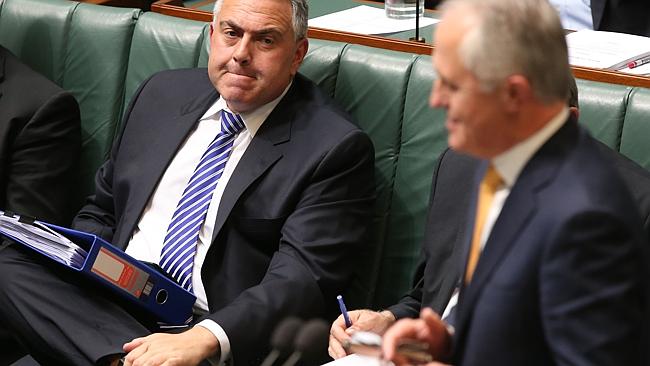Business turns down budget booster
IT WAS billed as the big-ticket item of Joe Hockey’s small business budget, but new data suggests it hasn’t been the booster the government might have hoped.

IT WAS billed as the big-ticket item of Joe Hockey’s small business budget, but new data suggests it hasn’t been the booster the government might have hoped.
Nearly two thirds (59 per cent) of small businesses employing fewer than 20 people have not taken advantage of the $20,000 instant asset tax write-off, Galaxy research has found.
Moreover, the companies that could most benefit were the least likely to take advantage of the tax break, according to the survey of 500 small business owners conducted on behalf of Optus.
It found just 29 per cent businesses turning over less than $50,000 used the write-off compared with 51 per cent over those turning over more than $200,000.
In metro areas, 28 per cent invested in new tools and equipment and 23 per cent invested in technology, while in regional areas, 23 per cent invested in new tools and equipment, but only 14 per cent invested in technology.
Alex Butterworth, a lawyer specialising in tech start-ups, said he abandoned his plan to invest in an app for his business after finding out it wouldn’t be eligible for the tax write-off.
Mr Butterworth planned to hire a developer to upgrade his business management software for around $5000.
For software to be eligible for the deduction, it needed to be off-the-shelf software to be used exclusively in the business, making him ineligible. Mr Butterworth said the requirements were too restrictive, particularly for start-ups.

“If you wanted to build some software and then license that to other businesses, or if you wanted to use it for personal and business, then it wasn’t eligible,” he told news.com.au. “A lot of my clients had the same problem.
“There’s the immediate business cost, but once you’ve got software that is the business asset, you should be able to write off the value because after one year it’s going to be redundant and need updates.
“It’s the same as if you have an apartment you rent out — after a certain amount of time you need to replace the carpet.”
Male business owners were more likely to have taken advantage of the write-off, with 47 per cent having made an investment compared with just 35 per cent of women.
Those most likely to make an investment were businesses with 6 to 19 employees (60 per cent), compared with 41 per cent of businesses with two to five employees, and 35 per cent for sole traders.
Cornerstone Group’s Tim Hoopmann, a tax adviser specialising in small businesses, said it was all down to poor timing. “For many of my clients, the rebate was brought in at a time when there were other priorities in their business,” he said.
“SMB’s tend to finalise their annual budget at the end of the financial year, or at the start of the new financial year, so when the write-off was introduced in May, they either didn’t have any spare cash available to take advantage of it or were focusing on other aspects of their business leading into year end.”
Mr Hoopman said the deductions can be claimed until the end of 2017, giving SMBs plenty of time to use the benefit should the need arise.




